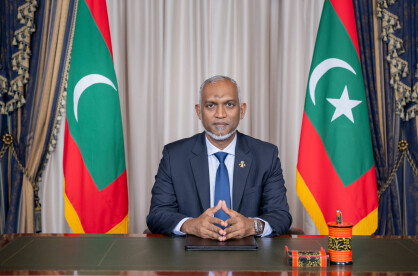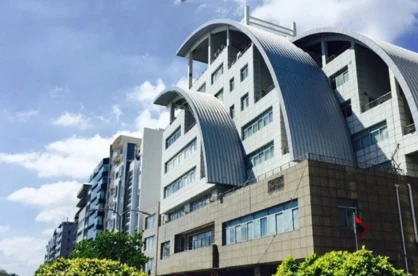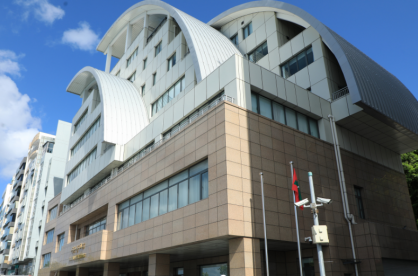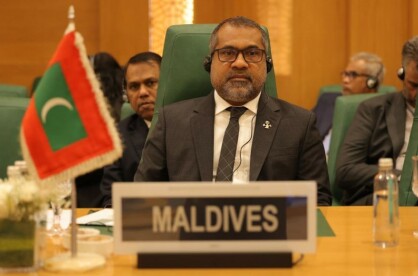Parliament is a sham
When it comes to the Majlis, the members appear to be thriving while the public lament their performance.

Source: Twitter
When it comes to the Majlis, the members appear to be thriving while the public lament their performance.

Source: Twitter
The ideal Parliament represents the voice of thousands of citizens, their fears, concerns and ideas, coming together to create positive, meaningful change, and a society they believe in. The members of the parliament represent each their own constituency, and the public as a whole, rather than themselves, to ensure that everyone’s voices are heard and conveyed fairly. However, ideal situations rarely occur, and in the Maldives, the ideal image is so far removed from reality even the people themselves are ashamed.
Since 2008, politics in the Maldives has been quite polarised between two parties, or, more accurately, between two groups. If the differences are stripped down to the bare denominators, it is obvious there is barely any aspect of ideological difference between the two factions. Other than the general differences between which country to opt for in terms of an alliance in economic and militaristic approaches, the two groups are divided only by personalities.
With that, the parliament, as well as the local councils, are where these two factions battle it out for 'representation.' Already the foundations of the democracy former president, and current Speaker, Mohamed Nasheed had fought for, appears to be flawed, and the people are left with having to choose between the two factions instead of true, proper representation. Each term fails to bring forth an opportunity for a change in the system as the incumbent party players indoctrinate more and more members into their fray, setting the precedent of what a Maldivian parliament member is expected to be.
One might wonder why the people have not called for, and acted upon, change themselves. Truth be the fact that it is their votes that catapult these people into the parliament into the first place, so what really draws these votes in?
Qasim Ibrahim, parliament member, Speaker for a term, and self-made millionaire, once proudly claimed that he had pumped in funds in the multi-millions for the campaigns of prospective members. With the law setting a limit of MVR5 million per candidate, and while in general, this might be an acceptable value, in the local context this is absolutely over the top. What is this money being spent on? Poster printing, banners, sponsoring campaign events, maybe even television spots, but if these candidates were pushing their candidacy through party-backed tickets, are these exorbitant funds really necessary?
Furthermore, a gritty truth that needs to be accepted is how the people are not exactly voting in the best interests of the society, but the best interests of themselves. Buying voter loyalty is not only a common situation, but has become quite the norm in Maldivian democracy. The disillusionment of the people toward the actual engine of democracy is almost tangible, where a vote carries more monetary value than patriotism — sometimes represented in terms of televisions, air conditioners, computer labs, jetties and more.
According to sources who spoke to this publication, during the last Majlis campaign, entire youth groups were rounded up and sent off abroad on sponsored vacations in return for votes. A whole trip, fully paid for, with the intention of wooing these voters into helping select candidates secure positions seems like the most lopsided transaction, yet the reality of the matter stands.
Additionally, the wildly popular Abdhulla Jabir also proves this point. He is a person who has been embroiled in scandal from day one, playing more of a role in publicity and politically shifting climates, than the assignment of being a humble member of parliament. As for his integrity, multiple allegations have been made over the last decade which imply he is not fit to be the role model and public representative he is today, yet his constituency remains ominously silent. It is hard to believe that they did not see his videos, such as the one of him being arrested by the police while at Hondaidhoo in 2012, and of course some of the more colourful and deeply concerning videos of late.
Other political players in other countries lose their entire careers by these strikes to the dignity and their honour. Yet in the Maldives, these members retain both their positions, their power, and their influence for decades on end, creating an entrenched parliament of incumbent politicians refusing to budge — one might even argue that their infamy brings them more votes and influence. New blood is rarely seen, and even then they would need to sign on to the party whip on whichever side they opt for, to have a shot at winning the candidacy.
What these members do once in their influential positions seems to fall into a very simple formula as well. While numbers do show that the parliament is operating as it should, albeit inefficiently, the numbers also show that they have been using this position in aspects bordering on indictable corruption. Members have been known to allegedly use their positions to lobby entire ministries to ease their business ventures. Six islands that were recently put up for auction for tourism were won by a member of parliament and his affiliated companies. Another member holds shares in a high earning enterprises in the field of medicine, a highly valuable asset during this pandemic of late. Furthermore, family members and even spouses of such members can be seen in political appointments, hoarding in hefty pay checks with little to show for it as far as the public is concerned.
It is apparent that the people themselves are ashamed to have played a part in propping up this flawed system. While an ideal parliament would need almost heroically selfless people as representatives of their constituencies, the fact that being a parliament member in the Maldives equates to being a wealthy individual is cause for concern. This is the part of the governing system where the people would have more real-time influence than anywhere else, in how their nation is shaped for the future.
Too many people believe the only way to get out of this malicious, parasitic system of democracy is by replacing all incumbent leaders and members and starting off fresh. The political system needs more checks and balances to ensure it is more ideological conversation that drives the contest for power rather than certain personalities and honeyed words. However, unless the first seeds of a reformed society is planted today and allowed to grow rampant, the change may never occur until generations come and go.



